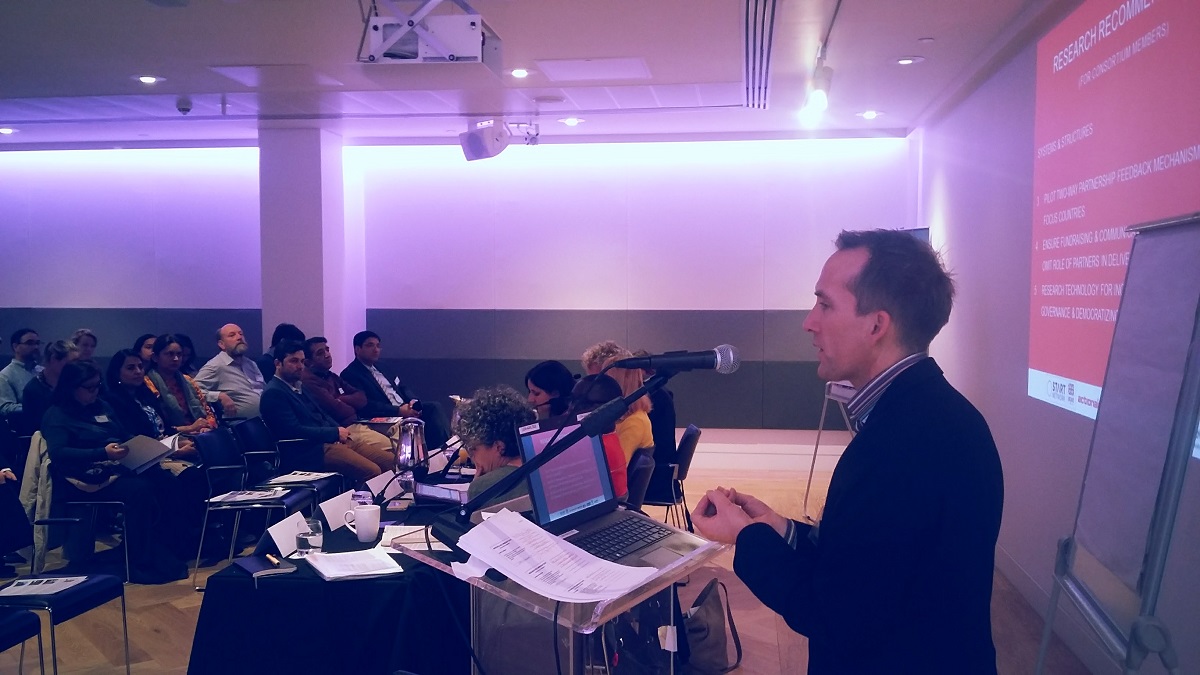Haben Habteslasie is the Advocacy and Communications Advisor for the Disasters & Emergencies Preparedness Programme.
The typical and historic scenario when disaster strikes is that big international aid agencies travel hundreds of miles to help families who are affected. Those we see represented less often, however, are the local first responders.
Local humanitarian organisations are one of the first to respond; they know the context, speak the language and will be there long after international actors leave. Yet, less than 2 per cent of all humanitarian funding goes directly to local actors. How can we begin to redress this imbalance? As part of DEPP week, we organised a discussion around this question, offering key learning from one of our projects which has worked on this very issue.
The Shifting the Power project strengthens local and national capacity for decision-making and leadership, facilitating local organisations to achieve greater representation in decision making forums and recognition. It also influences international organisations to support and promote the work of local and national organisations and, in this vein, DEPP brought together a wide spectrum of INGOs to DEPP Resilience Week. They heard the voices of representatives from national and local organisations and were open to paving the way for them to have a greater role in leading responses to humanitarian crises.
Sana Zulfiqar, shared her experience of working as the Humanitarian Coordinator Officer of the National Humanitarian Network (NHN) made up of 177 local and national members in Pakistan. She said:
"There are gaps in the communication of commitments between international NGOs at global and national level."
Christina Schmalenbach, Humanitarian Capacity Building Coordinator at Oxfam, responded by saying:
"This sounds like the kind of organisation we should help. What do you want us to do?"
Our DEPP report, 'Localisation of Aid: Are INGOs walking the talk?', explores localisation and the gaps in the practice of using locally led approaches and was launched at our event, where we also held a lively discussion on this topic.
Michael Mosselmans, Head of Humanitarian Policy, Practice and Advocacy at Christian Aid said:
"In the past we had flexible resourcing from supporters and donors but it was difficult to maintain as we started getting more funding from larger institutions. We need to enable flexible core funding so that NGOs can build their own capacity"
Discussion was positive on the whole, since talk of ‘localisation’ has become a buzzword in the humanitarian sector. But it was important to manage expectations - using a locally led approach is part of the Grand Bargain commitments, but it also goes against the status quo of how bigger international NGOs have operated since time immemorial.
Moreover, it is harder to see this kind of change overnight, since much of actualizing this change involves capacity building. In our work at DEPP, we have spent much of our resources, not only on capacity building, but also on identifying the opportunities, challenges and good practices in this endeavour. If humanitarian organisations are going to move in this direction, we must help each other to identify common practices and pitfalls, and we must agree what this commitment of localising aid means in real terms.
Read more about how we approach localisation
Read about DEPP and more on its projects:

